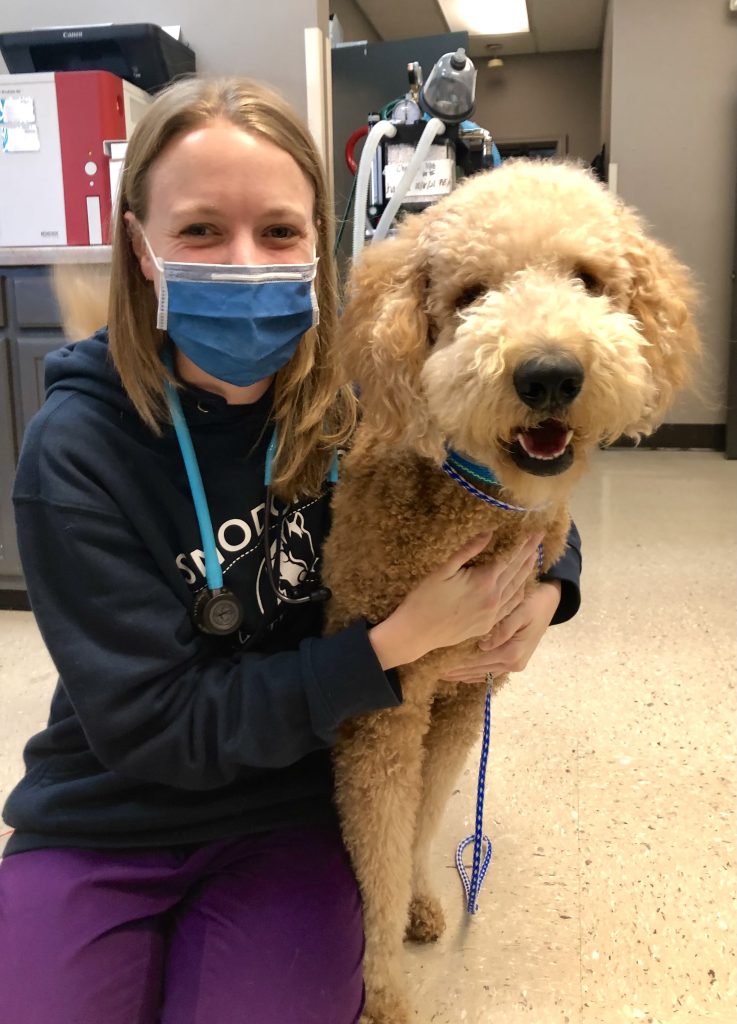When your pet is scratching, licking, and chewing constantly, it can be frustrating to watch them suffer while not knowing the exact cause of their issue. This is when allergy testing can come into play and help immensely.
What are the symptoms of allergies in pets?
Dogs with allergies can display some or all of the following:
- Itchy, watery eyes
- Runny nose or snorting
- Itchy ears or ear infection
- Chewing, licking feet/pads
- Gastrointestinal issues (i.e. diarrhea & vomiting)
- Skin issues including infection
- Hair loss or bald patches
Symptoms in cats are similar:
- Red, itchy, watery eyes
- Sneezing, coughing, wheezing
- Ear itching & infections
- Itchy back or tail base
- Diarrhea & vomiting
- Paw chewing, swelling
- Hair loss
- Hives & rash
- Snoring
Which allergy test is available at Snodgrass Veterinary Medical Center?
Our allergy testing through Nextmune requires an appointment at our clinic during which a quick and easy blood sample will be collected from your pet. This sample is then sent to the testing facility to be analyzed for about 100 possible allergens. The cost of the test at our clinic includes the visit, the test itself, and the first round of treatment (injections).
“This is one of the best ways to gain peace of mind when it comes to helping your pet feel their best.”
This is one of the best ways to gain peace of mind when it comes to helping your pet feel their best. Please contact us at 270-781-5041 to inquire about the current cost or to set up an appointment to see if testing is the best route for your pet.
What do we test for?
At least three panels can be included in the allergy test. The first panel tests for 91 allergens, including weeds, trees, grasses, epidermals, foods, mites, molds, staph, insects, Malassezia, and indoor allergens.
The second panel is regional, meaning weeds, trees, and grasses specific to your area will be tested (53 allergens).
The third panel (24 allergens) is the comprehensive food panel, which includes the most common commercial pet food ingredients.
“It opens the door for treatments and dietary changes that will help your pet feel better.”
Many pet owners discover their pets have both food and environmental allergies. That was the case with the sweet dog pictured below named Leo. He was recently tested at our clinic, and we discovered numerous allergies. As a pet owner, that may seem overwhelming at first, but it opens the door for treatments and dietary changes that will help your pet feel better.

How are the test results explained?
After testing is complete, you will receive a comprehensive booklet containing all results (negative and positive) for your pet. This booklet will provide you with treatment recommendations, dietary suggestions, and an allergy-proofing guide for your pet’s living space.
As previously stated, the first round of treatment, in the form of injections, is included in the initial cost of testing, and our staff can set up an appointment if you need assistance when it comes to learning how to give your pet an injection.
How do the treatments work?
Each injection contains microscopic concentrations of the allergens your pet reacts to, which is called hypo-sensitization therapy. This helps the immune system safely acclimate to the existence of those allergens in your pet’s body.
“Allergies are progressive, meaning if they are not managed properly, symptoms could worsen.”
With the treatments, it can take a few months to see full results as your pet’s immune system adapts and stops producing reactions. Treatments must be continued long-term for your pet to experience continued relief. Allergies are progressive, meaning if they are not managed properly, symptoms could worsen.
Are there options other than testing?
Comfort therapies can be tried with your pet, including prescription medications and special shampoos to soothe your pet’s skin; however, these therapies merely mask symptoms for a short time to provide short-term relief. Testing is the best way to get to the root of the problem and provide specific treatments that will help your pet feel better and thrive.
Information provided by Nextmune.






